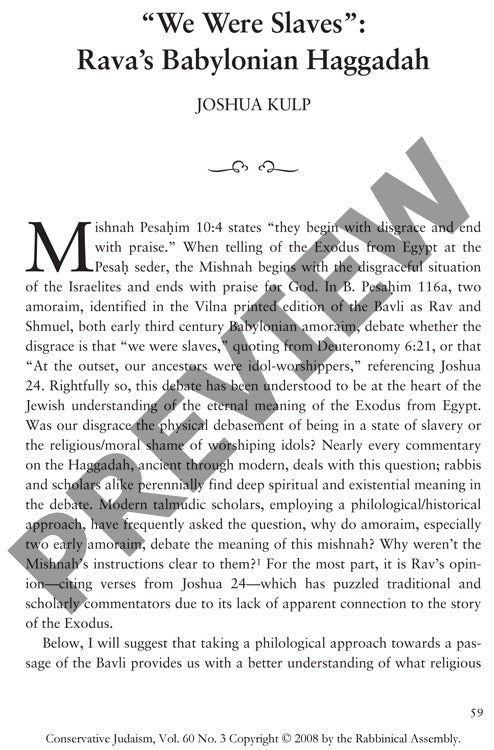We Were Slaves Ravas Babylonian Haggada
Couldn't load pickup availability
A single misattributed line in the Passover Haggadah - "we were slaves" - conceals a pivotal transformation in Jewish liturgical history. While printed editions credit this declaration to Shmuel, manuscript evidence and philological analysis reveal its true author as Rava, a mid-fourth century Babylonian religious authority. Rava's interpretation of both the "disgrace" and "praise" elements in Mishnah Pesahim 10:4 deliberately drew from Deuteronomy 6:21-23 rather than the Book of Joshua, marking a profound shift in how Jews would tell their liberation story. As rabbinic authority migrated from Eretz Yisrael to Babylonia, Rava reimagined the Passover narrative for a diaspora audience, emphasizing universal themes of slavery and freedom over the more territorially-focused narrative of exile and return to Israel. Through careful textual analysis, this research demonstrates how Rava's subtle textual modification transformed the Exodus story from a specifically Jewish narrative of national redemption into a universal tale of human liberation - one that would later resonate with oppressed peoples worldwide. The corrected attribution illuminates a crucial moment when Jewish leaders actively adapted their foundational texts to speak beyond geographical boundaries while maintaining their essential meaning.

More Information
-
Physical Description
-
Publication Information
Published 2008
ISBN
-
Publication Credits
Joshua Kulp

